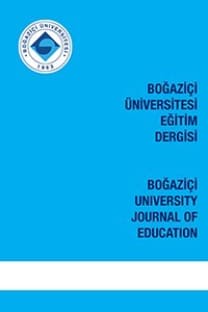Mind the Gap EFL/ELF: What lies in between what teachers teachand what students use, and its pedagogical implications
ELF and critical linguistic pedagogy, intercultural education, post-normative approach to EFL pedagogy
___
- Alim, S. H., Ibrahim, A., & Pennycook, A. (Eds). (2009). Global linguistic flows: Hip hop cultures, youth identities, and the politics of language. London, New York: Routledge.
- Androutsopoulos, J. (2009). Language and the three spheres of hip hop. In Alim et al., Global linguistic flows: Hip hop cultures, youth identities, and the politics of language. (pp.43-62).
- Auer, P. (Ed). (1998). Code-switching in conversation: Language, interaction and identity. London, New York: Routledge.
- Auer, P. (Ed). (2007). Style and social identities. Alternative approaches to linguistic heterogeneity. Berlin; NewYork: Mouton de Gruyter.
- Bagna C., Barni M.. (2005). Spazi e lingue condivise. Il contatto fra l’italiano e le lingue degliimmigrati: percezioni, dichiarazioni d’uso e usi reali. Il caso di Monterotondo e Mentana.(223-251). In C. Guardiano, E. Calaresu, C. Robustelli, & A. Carli (Eds.). Lingue, Istituzioni, Territori. Atti del XXXVIII Congresso Internazionale di Studi della Società di Linguistica Italiana. Modena 23-25 settembre 2004, Roma: Bulzoni.
- Bazzanella, C. (2011). Linguistica e pragmatica del linguaggio: un’introduzione (3° ed.). Roma: GLFeditori Laterza.
- Dewey, M. (2012a). Beyond labels and categories in English language teaching: Critical reflections on popular conceptualisations. In C. Leung & B.Street (Eds.). English – A changing medium for schooling. Bristol: Multilingual Matters.
- Dewey, M. (2012b). Towards a post-normative approach: learning the pedagogy of ELF. Journal of English as Lingua Franca. 1(1), 141-170.
- Dewey, M. (2007). English as a lingua franca and globalization: an interconnected perspective.International Journal of Applied Linguistics, 17(3), 332-354.
- Colombo, M., & Santagati, M. (2010). Interpreting social inclusion of young immigrants in Italy. Italian Journal of Sociology of Education, 4, 9-48.
- Fairclough, N. (1989). Language and power. London; New York: Longman.
- Freire, P. (1970). The pedagogy of the oppressed. New York: Herder & Herder.
- Flick, U. (2007).Designing qualitative research. London: SAGE.
- ISSN: 1300-9567
- Yayın Aralığı: 3
- Başlangıç: 1976
- Yayıncı: Boğaziçi Üniversitesi
UWC Schools: An Ideal ELF Environment?
Veronika NOVOTNÁ, Jirina DUNKOVA, David GROSSNER
All Englishes Are Equal (But Some Are More Equal Than Others)
Building a Singapore Learner Corpus of English Writing for Pedagogy
Zhang RUİHUA, Guo LİBO, Hong HUAQİNG
Exploring Non-Native English Teachers’ Professional Development Practices
Sibel KORKMAZGİL, Gölge SEFEROĞLU
First Stage in the Construction of METU Turkish English Exam Corpus (METU TEEC)
